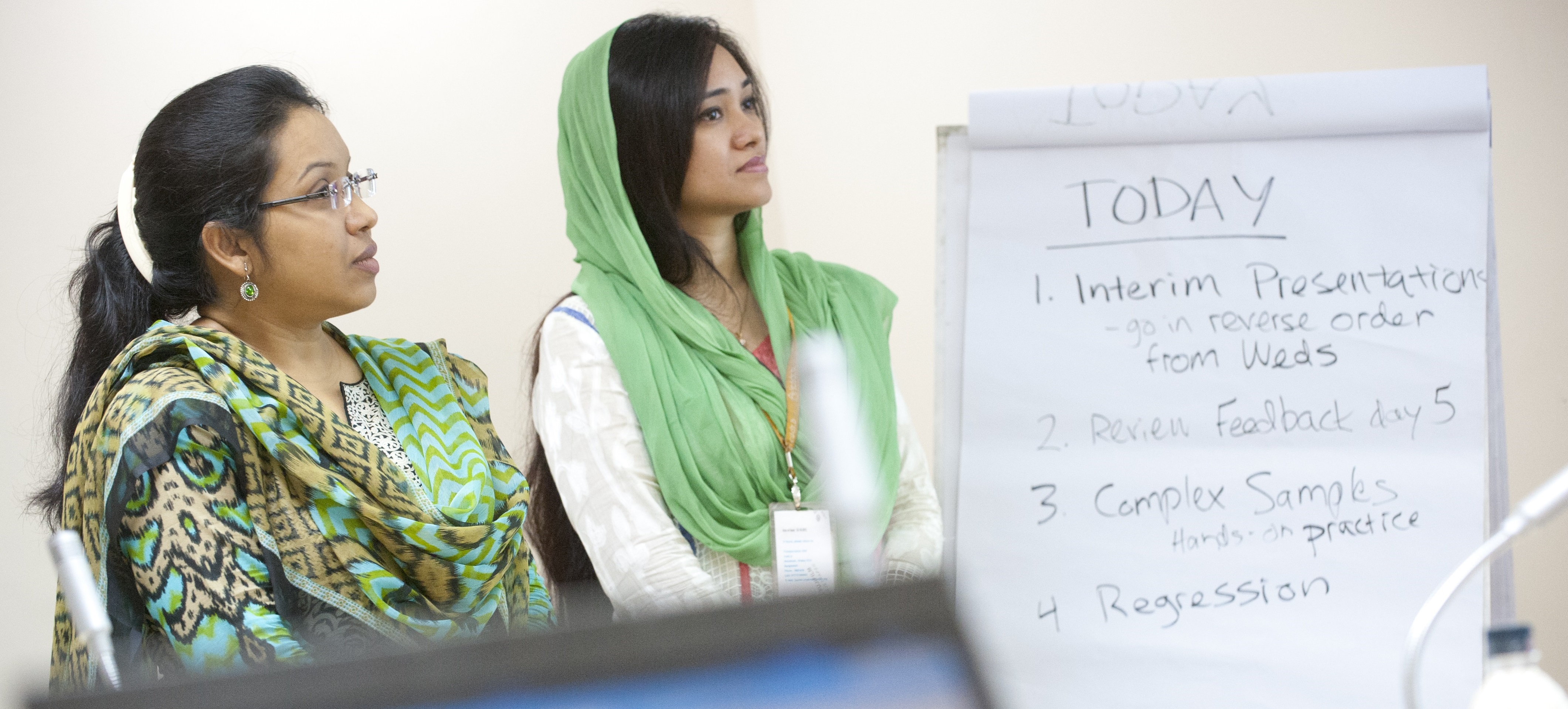Journal Articles
Search our database of 1000's of peer-reviewed journal articles that feature DHS data.
Featured Studies
Featured research topics go beyond a single research paper and often include multiple publications and user-friendly summaries and dissemination materials.
The DHS Fellows Program
Researchers in DHS countries work with DHS analysts to design, analyze, and write a publishable paper.
DHS Analysis Blogs
Read more about our recent research, innovative methods, and success stories.
Research and Further Analysis

The DHS Program's in-house Research and Analysis team conducts rigorous, timely, and innovative mixed-methods research on topics related to global public health, demography, and social epidemiology. Our team also trains, mentors, and closely collaborates with fellow researchers and stakeholders who are driven to utilize DHS Program surveys and other survey data to inform programs and policies in various countries and contexts.
Visit the publications search for a full list of publications. Also, go to the journal articles search for a full list of published journal artilcles that feature The DHS Program data.
DHS Research Reports
Aug 2016
Geospatial Modeling of Child Mortality across 27 Countries in Sub-Saharan AfricaPreventable mortality of children has been targeted as one of the UN’s Sustainable Development Goals for the 2015-30 period.
Topics: Geographic Information, Infant and Child Mortality
Aug 2016
Guidance for Use of The DHS Program Modeled Map SurfacesImproved understanding of geographic variation and inequity in health status, wealth, and access to resources within countries is central to meeting sustainable development goals.
Topics: Geographic Information
Aug 2016
Marriage and Fertility Dynamics: The Influence of Marriage Age on the Timing of First Birth and Birth SpacingIn a context of rising marriage age for women and a compression of first birth intervals, this study uses survival analysis, hazard models, and multivariate decomposition techniques to investigate the influence of marriage age on the first birth interval over time, and the implications of both marriage age and first birth interval on the second birth interval.
Topics: Family Planning, Fertility and Fertility Preferences, Youth
Aug 2016
Intimate Partner Violence and Interruption to Contraceptive UseThis study explores the relationship between intimate partner violence (IPV) and contraceptive discontinuation using data from 11 Demographic and Health Surveys.
Topics: Domestic Violence, Family Planning
Aug 2016
Long Term Trajectories of Fertility and Contraceptive UseDHS estimates of current fertility and contraceptive use have immediate interest after the release of each survey.
Topics: Family Planning, Fertility and Fertility Preferences
Aug 2016
Levels and Determinants of Out-of-Pocket Health Expenditures in the Democratic Republic of the Congo, Liberia, Namibia, and RwandaThis study uses data from the Demographic and Health Surveys to explore the levels and determinants of out-of-pocket health expenditures in four African countries— Democratic Republic of the Congo (DRC), Liberia, Namibia, and Rwanda.
Topics: Wealth/Socioeconomics
Aug 2016
Provider Counseling and Knowledge Transfer in Health Facilities of Haiti, Malawi, and SenegalEffective counseling by health care providers can increase client’s knowledge and improve health outcomes.
Topics: Child Health and Development, Family Planning, Maternal Health
Aug 2016
Using Household Survey Data to Explore the Effects of Improved Housing Conditions on Malaria Infection in Children in Sub-Saharan AfricaIn the past decade, malaria control strategies in sub-Saharan Africa have focused on the use of insecticide-treated nets (ITNs), indoor residual spraying (IRS), and prompt diagnosis and treatment in combatting malaria.
Topics: Child Health and Development, Malaria
Aug 2016
Integration of Infectious Disease Services with Antenatal Care Services at Health Facilities in Kenya, Malawi, and TanzaniaThe disproportionate demand for services related to infectious diseases such as HIV/AIDS, tuberculosis, and malaria among pregnant women in sub-Saharan Africa, given limited health facility attendance, drives a need to integrate these services with antenatal care (ANC).
Topics: HIV/AIDS, Maternal Health
Mar 2016
Performance of Enzyme Immunoassays for HIV Serology in Surveys Conducted by The Demographic and Health Surveys ProgramSince 2001, The Demographic and Health Surveys Program has conducted HIV testing in surveys to measure HIV prevalence.
Topics: HIV/AIDS